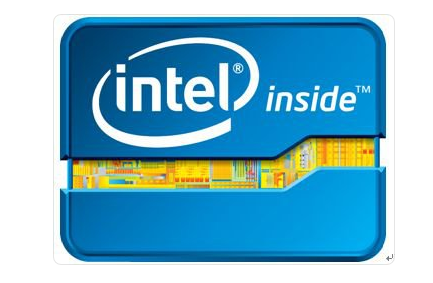A few days ago, many people were still immersed in the pain and frustration of Apple's mobile phone system slowdown.
Just as Apple's turmoil has not subsided, Intel, the world's largest semiconductor company, has also been exposed as having a fundamental design flaw. This loophole touched all of the computers that used Intel chips in the past decade, including Microsoft Corp.'s Windows and Apple's OS X operating system.
In other words, some people slow down the phone after the phone becomes slow!

Intel statement is resolved
In the early hours of January 4, Intel Corp. released a statement on security holes through its official Twitter, stating that it is working with AMD and software vendors to "develop a industry-wide approach" to address this issue . Also said that other companies have the same chip problem.

The statement said they plan to disclose the loophole when it rolls out more software patches next week, but has to make a statement today due to inaccurate media coverage.
"Today's media reports that the security issue is caused by a" flaw, "and that it is not true that Intel chips are affected. Based on the current analysis, many types of computing devices, including many different vendors' processors and operating systems, Are vulnerable to these vulnerabilities. "In a statement Intel mentioned, and they believe any performance impact is determined by the workload, which is not significant for the average user and will be alleviated over time.
After Intel released a statement, both AMD and ARM said they will actively cooperate with partners to prevent security breaches, but did not explicitly acknowledge their new flaws.

Cited Intel's statement that the media, is the British technology website The Register. Yesterday (3rd), The Register reported that Intel processor chips have a fundamental design flaw. The industry is currently redesigning the Linux kernel and Windows kernel to lift chip-level security holes.
The report sent a huge impact on Intel's share price. Intel lost 6.61% on the session Wednesday, but rose strongly in the late session and ended the day 3.39% lower at 45.26 U.S. dollars. On the other hand, Intel's competitor, AMD's share price, surged sharply, surging 9.5% intraday after it ended up 5.19% to $ 11.55.

Apple has been partially repaired
In addition, many users are concerned about Apple's actions on the matter. However, Apple has fixed this issue with the update to macOS High Sierra 10.13.2 released in December 2017 and will fix more in the upcoming 10.13.3 update.
Multiple sources within Apple, not authorized to represent the company, have confirmed to AppleInsider that macOS High Sierra 10.13.2 has routines to stabilize bugs that may allow applications to access protected kernel memory data. Together, these measures, coupled with more than a decade of Apple's existing program requirements for kernel memory, seem to have mitigated most of the damage posed by exposed exposure vulnerabilities.
Alex Ionescu, developer, is also tweeting out the code to fix the issue and call it a "Double Map."

▲ Alex Ionescu Twitter Screenshot
AI sources (including Ionescu) said that macOS High Sierra 10.13.3 will bring more changes, but both declined to disclose more details.
The site is currently running a speed test on the 2017 MacBook Pro. From early tests, there was no significant performance degradation between systems running macOS High Sierra 10.13.1 and 10.13.2.
As Microsoft and Linux, which were mentioned in previous reports, are fixing the system, Microsoft revealed to the AI that they are currently unable to comment on the schedule for release updates, but that kernel memory management has changed in the Windows 10 beta at the end of 2017.